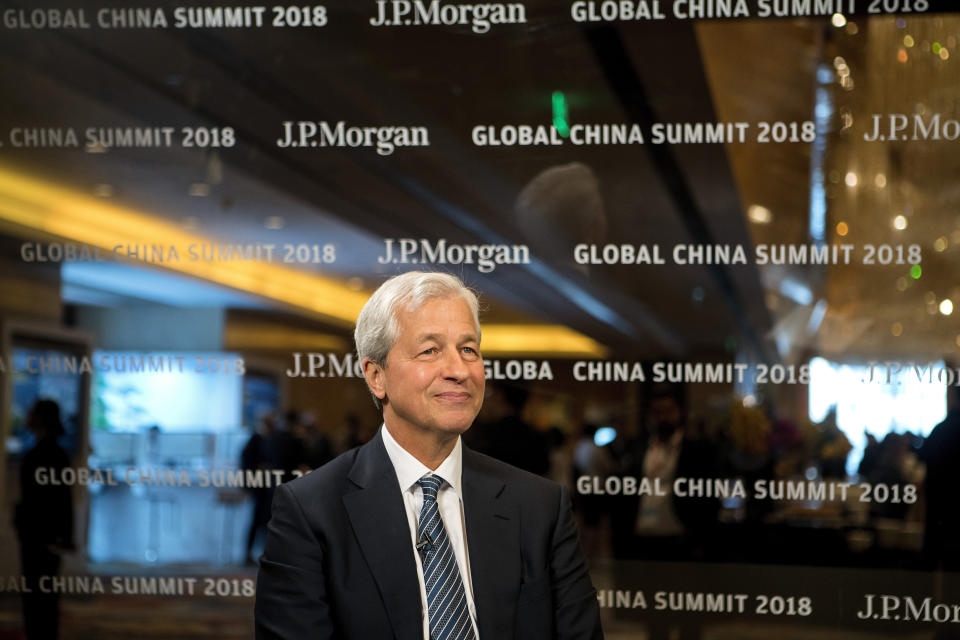Jamie Dimon: 'China does not have a straight road to becoming the dominant economic power'
Will China surpass the U.S. as the world’s largest economy? Probably not any time soon, according to JPMorgan CEO Jamie Dimon.
In his annual letter to shareholders on Thursday, Dimon warns there are many obstacles ahead for the world’s second-largest economy, from both the domestic market and external environment, including its trade relationship with the U.S. While he believes China’s system has proved effective in maneuvering economic hardships, “the American public should understand that China does not have a straight road to becoming the dominant economic power.”
China has achieved an economic miracle that transformed the country from one of the world's poorest nations to the second-biggest economy on earth since its reforms in 1978. The extreme poverty rate, for example, dropped from almost 90% in 1981 to less than 1% today. But after years of growth, China has inevitably slowed down because of the sheer size of its economy and ongoing structural reforms. China’s economic growth rate has been down to 6.6% in 2018 — the slowest in 30 years. In March, the authorities further lowered growth target from 6.5% in 2018 to 6%-6.5% for 2019.
Dimon on China’s political system

In his letter, Dimon also made a rare comment on China’s political system, pointing out that only a limited number of people participate in the nation’s political system. Other serious issues facing China are corruption and the inefficient state-owned enterprises that control the economy. But overall, Dimon believes these concerns are “manageable” because China is aware of them and its powerful government and tight control of society allow the country to “both macromanage and micromanage its economy and move very fast.”
“Government officials can pull, in a coordinated way, fiscal, monetary and industrial policy levers to maintain the growth and employment they want, and they have the control and wherewithal to do it,” Dimon wrote.
China’s government has always played a visible hand in the economy while trying to push for reforms to cultivate a more market-based economy. During the financial crisis, the government issued a stimulus package of 4 trillion yuan ($586 billion) to minimize the impact. In the following years, it went through a painful deleveraging. This year, the authorities are sending out signals that it will ease monetary and fiscal measures to support economic growth.
Trade tensions with the U.S. are also risks for China. As both countries move closer to a deal after the year-long dispute, “the odds are high that a fair trade deal will eventually be worked out,” Dimon wrote. Business communities in the U.S. have largely voiced support of the Trump administration’s tough stance on addressing China’s trade practices, which include intellectual property and restrictions on foreign investment joint venture.
“We should only expect China to do what is in its own self-interest, but we believe that it should and will agree to some of the United States’ trade demands because, ultimately, the changes will create a stronger Chinese economy,” Dimon wrote.
Krystal Hu covers technology and China for Yahoo Finance. Write to her via krystalh@yahoofinance.com
Read more:
China builds the world’s longest high-speed rail as a rail stalls in the U.S.

 Yahoo Finance
Yahoo Finance 
